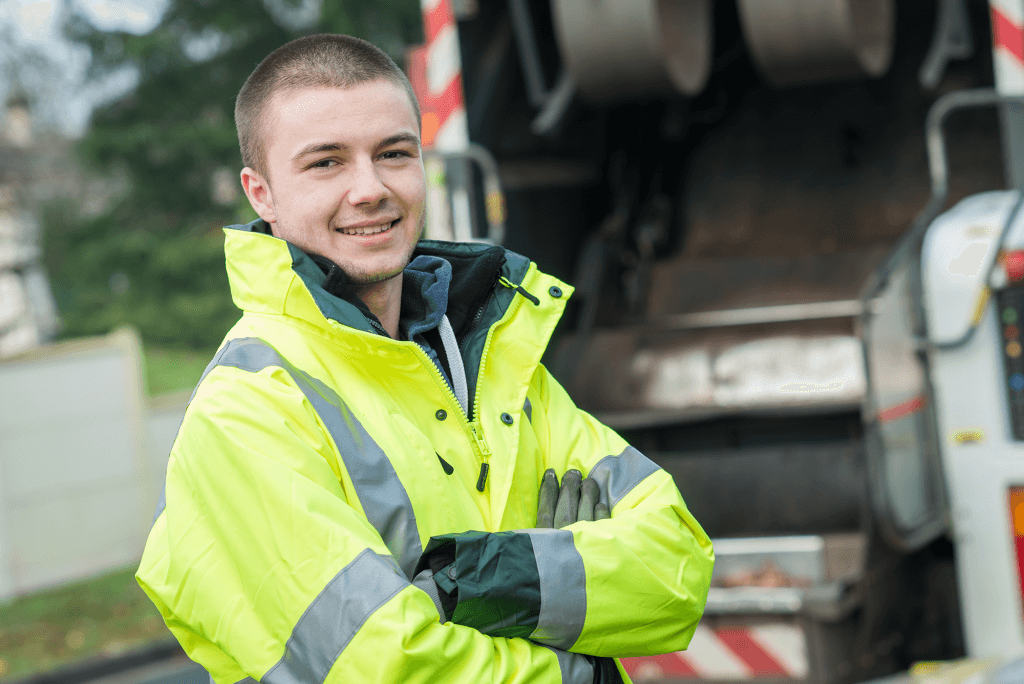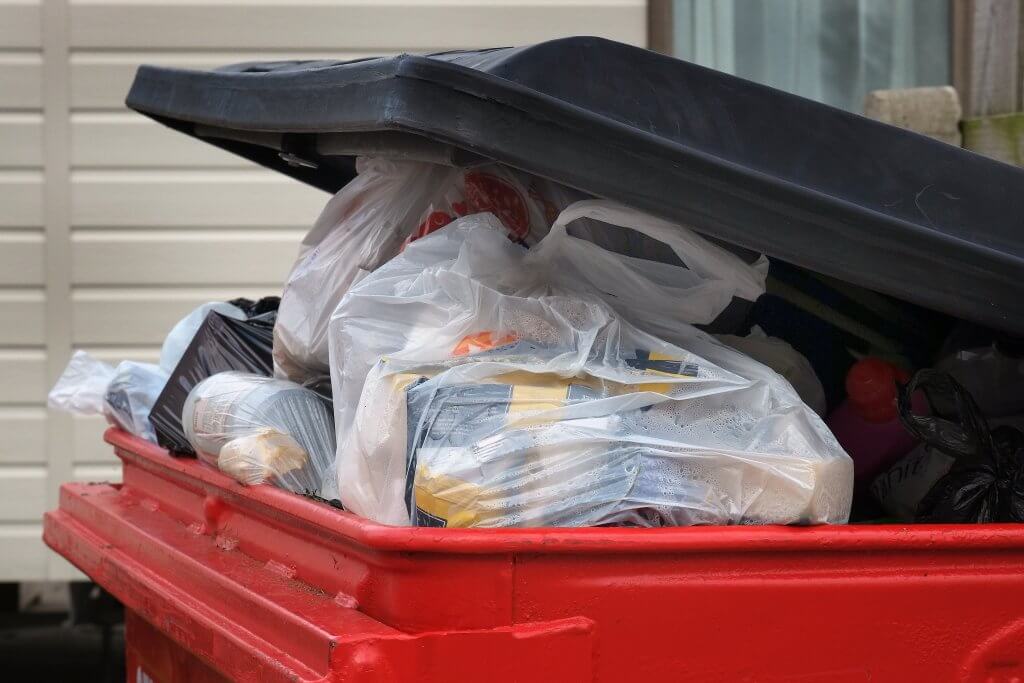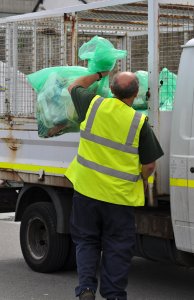Collecting waste and recycling is essential in maintaining the cleanliness and safety of our neighbourhoods. Although it seems like a simple task, the machinery, traffic and the waste itself holds dangers for crews and the public.
In this article, we will delve into the key health and safety issues related to refuse collection and explore effective strategies to address them.
So what are the risks?
Refuse collection can involve heavy lifting, repetitive motions, climbing in and out of vehicles, operating machinery and moving quickly from location to location. Workers are at constant risk of strains, sprains, and other musculoskeletal injuries. Slips and falls can occur, especially in adverse weather conditions or if the crew are working in a hurry.
To mitigate these risks, local authorities must provide regular training on lifting techniques, maintain a supply of personal protective equipment (PPE) such as gloves, boots, and reflective clothing, and implement protocols for working safely in various weather conditions.

Refuse collectors can come into contact with a variety of waste materials, some of which may be hazardous or toxic. Chemicals, broken glass, sharp objects, and biohazardous materials pose a potential threat to workers’ health.
Councils have to provide continuous education to their workers about how to spot potentially hazardous waste, the proper handling of containers, the use of appropriate PPE, and the importance of practicing good hygiene to prevent the spread of contaminants.

Waste crews also need access to first aid and effective means to get medical care should things go wrong – whether it’s a cut from broken glass, a needle prick or contact with chemicals.
Waste trucks often operate in busy traffic, in close proximity to pedestrians, cyclists, and other motorists. Drivers of waste vehicles are highly-trained but other road users around them may be distracted, aggressive or have poor risk perception.
Vehicle-related accidents can have severe consequences. Councils must ensure continuous driver training, implement strict traffic safety guidelines, and ensure that vehicles are well-maintained to minimise the risk of accidents.
The use of rear vision cameras, proximity sensors, audible warnings and other fail safes can enhance the safety of waste collection vehicles, but should not be a primary method of ensuring safety.

Aside from acute injuries, the physical demands of refuse collection can contribute to longer term chronic issues for waste crews. Councils must consider the impact of sustained manual work when considering what types of waste containers to use, what shift patterns to operate and the design of collection routes.
Waste managers should also consider simple approaches, such as promoting regular breaks (and ensuring crews take them), stretching exercises, and wellness programs that can help alleviate the risk of long-term musculoskeletal issues.
It’s impossible to know exactly what is in each bin that your crews collect, and there will always be a risk from infectious diseases.
Proper training in infection control measures, the provision of hand sanitizers and disinfectants, and the correct use of appropriate PPE can significantly reduce the chances of disease.
Councils should also ensure residents are aware of the proper methods of disposal of biohazardous waste. This may need to be backed by enforcement action to protect both workers and the environment.
Refuse collection is a vital service but it comes with real health and safety challenges. Addressing and mitigating these risks is not just good business sense but a moral obligation to safeguard the well-being of those who keep our streets clean.
In future articles we’ll be looking in more detail at some practical steps that councils can take to protect the safety of refuse collectors and the general public.
We want to help you do better
We’re here to help you towards a better future with a happier public.
industry updates and news
Keep up to date with the waste collection industry and discover expert insights from our team.
Portsmouth City Council bring waste and recycling service in-house
Tim Hobbs
Apr 12, 2024 • 26 sec read
Are garden waste stickers necessary if you have in-cab waste technology?
Tim Hobbs
Jan 9, 2024 • 2 min read
Missed bins are a negative experience for everyone, but it doesn't have to be that way.
Tim Hobbs
Dec 17, 2023 • 4 min read